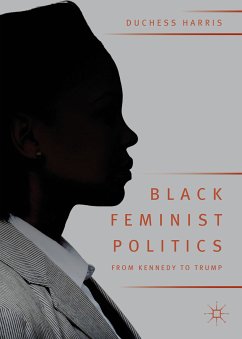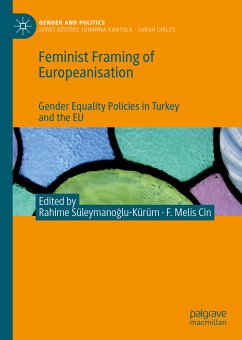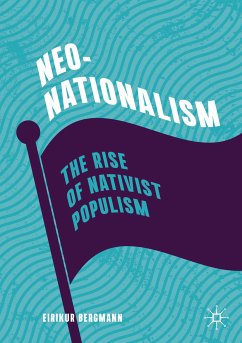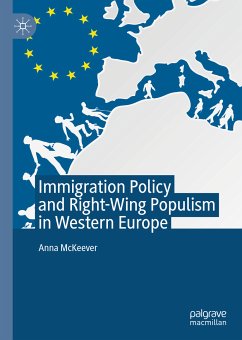
Left-Wing Populism and Feminist Politics (eBook, PDF)
Women's Movements and Gender Equality Policies in Evo Morales' Bolivia
Versandkostenfrei!
Sofort per Download lieferbar
Statt: 53,49 €**
40,95 €
inkl. MwSt.
**Preis der gedruckten Ausgabe (Gebundenes Buch)
Alle Infos zum eBook verschenkenWeitere Ausgaben:

PAYBACK Punkte
20 °P sammeln!
This book investigates the relation between left-wing populism and feminist politics by analysing three specific aspects. First, whether left-wing populist parties promote gender equality policies, against charges of a general inconsistency between both political projects; Second, how do these parties form their policy-making coalitions in the field of gender equality; Third, how much impact on policy do women's movements have when left-wing populists are in power. The book is focused on the case of Bolivia during the first twelve years of Evo Morales's presidency. The empirical analysis is ba...
This book investigates the relation between left-wing populism and feminist politics by analysing three specific aspects. First, whether left-wing populist parties promote gender equality policies, against charges of a general inconsistency between both political projects; Second, how do these parties form their policy-making coalitions in the field of gender equality; Third, how much impact on policy do women's movements have when left-wing populists are in power. The book is focused on the case of Bolivia during the first twelve years of Evo Morales's presidency. The empirical analysis is based on the qualitative content analysis of documents and semi-structured interviews with women's movements' activists, policy-makers and experts in women's movements. The central issue of the book is present throughout the volume, but each empirical chapter can be also read as a semi-autonomous analysis of a specific aspect of the relation between left-wing populism and feminist politics, whichincreases the interest of the book for different audiences including experts in gender and politics and feminist activists, specialists in Latin American politics, indigenous politics and social movements.
Dieser Download kann aus rechtlichen Gründen nur mit Rechnungsadresse in A, B, BG, CY, CZ, D, DK, EW, E, FIN, F, GR, HR, H, IRL, I, LT, L, LR, M, NL, PL, P, R, S, SLO, SK ausgeliefert werden.












